PHOTO |
 China
World
Newsmaker
Slides
Weekly Photos
Share Your Photos
Special China
World
Newsmaker
Slides
Weekly Photos
Share Your Photos
Special
|
|
 |
Large Medium Small |
|
 |
|
 |
 |
|
Lei Feng is more than just a name in China. He is hailed as a cultural icon, symbolizing selflessness, modesty, and dedication. His name creeps into people's hearts, daily conversation, music, even movies; his imagery can be found on cups, T-shirts, and bags. There's the Lei Feng Model Bus, Lei Feng Model Student, Lei Feng Class, Lei Feng Nursery, Lei Feng Village, just to name a few. But there are also undercurrents of ridicule, labeling Lei Feng as a fool, after 30 years of opening up and reform made consumerism a main driving force in people's lives and individualism leads to self-fulfillment. If previous role models were primarily sanctioned by the government to serve political ideologies, what we see today in the rapidly changing Chinese society is a diversity of role models and grassroots-based civic heroes, who are of the people and inspire the people. [See Below] As China commemorates Lei Feng on March 5 and in someplace the whole month of March is devoted to the campaign "Learn from Comrade Lei Feng", this special coverage intends to outline the subtle changes in people's perception of role models or heroes as well as the leading arguments for social values in China. 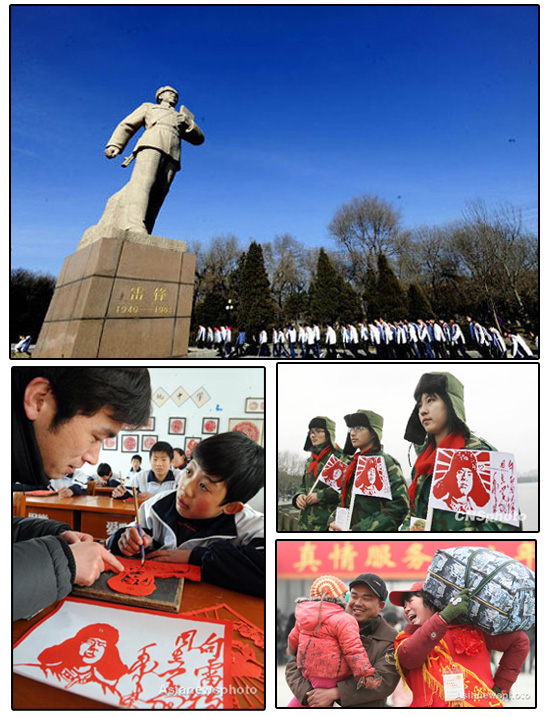 From top, clockwise: College students walk past a statue of Lei Feng during the "Lei Feng is in my heart" activity in Northeast China's Fushun; Art students in Lei Feng dress hold banners with Mao's words, "Learn from Comrade Lei Feng," in East China's Hangzhou; Volunteer Li Zhenrong helps a man carry luggage at a railway station in East China's Fuyang; A student learns how to make a paper-cut of Leifeng, in East China's Bozhou.
|
Originally called Lei Zhengxing, the former People's Liberation Army soldier was born on Dec 18, 1940, to a farming family in Wangcheng, Central China's Hunan province. He was killed in 1962, while directing a truck as it backed up. A pole struck him on the head. Lei had a habit of keeping a diary to detail his deeds and experiences, which was published after his death and became one of the bestsellers of the time. Many people in the West or China would take it for granted that Mao Zedong handpicked Lei Feng to be a role model devoted to the Communist Party and the people of China by writing, "Learn from Comrade Lei Feng," launching a nationwide propaganda. Lei Feng's rise from respected soldier to cultural icon that still matters to China's social values today seems to be less politically charged than was assumed. According to Lin Ke, a secretary in Mao's office, China Youth magazine approached Mao in February 1963 to write an epigraph for their special coverage on the influences of Lei Feng. After repeated requests, Mao wrote, "Learn from Comrade Lei Feng" in the traditional calligraphy.
 China Youth magazine published Mao's writing on March 2, 1963. Two days later, it was republished by People's Daily, Daily of People's Liberation Army, China Youth Daily and Guangming Daily. The news media later published handwritten epigraphs by Liu Shaoqi, Zhou Enlai, Zhu De, Deng Xiaoping and other state leaders, finally immortalizing the solider as an emblem of selflessness and devotion. The posthumous campaign, whether you like it or not, could not deny that Lei Feng was a man of integrity, responsibility, and love by today's standards. Lei Feng had already built up a reputation thanks to media coverage, long before Mao's call. The soldier was characterized by millions as a selfless person who devoted his entire life to helping others. On Jan 7, 1963, the Defense Ministry named a transportation unit where Lei Feng once worked as the "Lei Feng Squad." The glory of Lei Feng extended from the military to other industries. |
|
 |
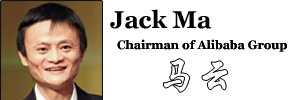 |
|
|
|
Jack Ma's unassuming profile belies his towering achievement as the founding chairman of Alibaba Group, the mammoth B2B online market that serves over 50 million customers around the world. Ma's e-commerce empire was named by Forbes magazine one of the best in the world, four times. In May 2009, he was honored on Time's list of the world's 100 most influential people. But that explains only half of Ma's charisma, the business icon part; what ultimately define him as a national idol are his numerous public speeches, sharing his own life stories of fostering a small business into a dream-come-true, offering young people his learning in business acumen as well as tough lessons often learned from bitter setbacks, all unreservedly and candidly, just like a fatherly tutor. |
Fairly speaking, Kai-fu Lee is an Internet legend in China. The Taipei-born, US-trained engineering whiz served at Apple and Microsoft R&D departments before becoming the founding president of search giant Google's operation in China, a revered position that made him a household name in China. However, Lee left Google in 2009 to start his own venture, Innovation Works, which promotes Chinese youths' entrepreneurship in mobile computing, e-commerce and cloud computing. His visionary tutelage as an IT guru has won him a corps of enterprising followers. Lee is also an active blogger and prolific writer, having penned at least five Chinese best-sellers, including a highly acclaimed autobiography. |
|
|
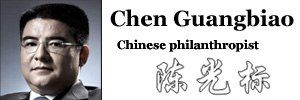 |
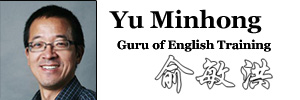 |
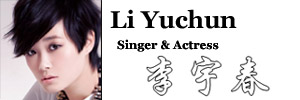 |
|
|
Chen Guangbiao is not the richest Chinese philanthropist, but by any measure, he is the most ostentatious one. The bluntly high-profile Chen is an unmistakable exception in a country where the officially endorsed get-rich-first morale has bred not only millionaires and even billionaires, but in recent years an undercurrent of sour-grapes resentment toward the mega-rich, who have been connected with cronyism and corruption by cynics. Unlike most fat cats who are sensible (or polite) enough to hide their big coffers and deep pockets, Chen is determined to take his wealth out, in the most public way. He literally piled up a wall of money bricks in front of flashing cameras and gave gift bags of cash in hundreds of thousands to the needy on the street, almost randomly. However, he insists this is the best way to wake up China's anemic philanthropy. |
As if he were a stand-up comedian leading a merry band of carpe diem boys, the "godfather of overseas study" Michael Yu Minhong usually finds himself giving pep talks to the cheers of a rousing audience of college students. Above all the laughs, he wants the students to know that he has been in college, and he wasn't so confident before. The Peking Univ.-trained English student didn't do well at school, nor when he applied for American universities. However, he found his self-training on the daunting TOEFL and GRE exams might be an untapped treasure trove. Well, it couldn't be truer. After some bumpy years of initial growth, the New Oriental Education & Technology Group Yu founded for English training turned out to be a resounding success. The company, NASDAQ-listed, is currently valued at more than $3.5 billion. |
The miracle of Li Yuchun's (aka Chris Lee) overnight fame as the champion of a singing contest could only be a fairy tale if not in an age that is more than willing to amuse itself to death. To say her contest in 2005 was phenomenal is a huge understatement. It was maniacal frenzy. Fans, divided into rival camps for their favorite singers, were in battle mode, screaming in raucous and teary yells in front of TV cameras, pleading for audiences' phone votes. Usually sheepish teenage girls would randomly stop strangers on the street: "Got a phone? Give it to me. I need to vote for Chunchun (Li's TV nickname)." The mass participation was unprecedented. The crescendo reached its climax on the night of the run-off, when Li was crowned, with over 3.5 million votes. Li has released four albums since then and made her film debut two years ago. |
|
|
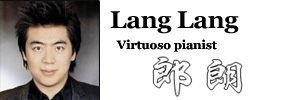 |
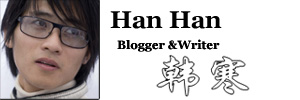 |
 |
|
|
Reading through Chinese pianist Lang Lang's musical career has an inescapable feeling of déjà vu. "Is this another wunderkind or someone I read before?" Age 13: He won the International Tchaikovsky Competition. Age 14: He entered young pianists' Mecca, the Curtis Institute of Music in Philadelphia. His teacher? Piano virtuoso Gary Graffman. Before 20, his concerts are sold out in every major city. The Berlin Philharmonic, the Vienna Philharmonic and top American orchestras are thrilled to have him on stage. (Do we have to continue?) The legend that follows each and every musical master is repeated here: the consumation is almost formidable. However, the lesser-known story is how Lang Lang made it. Once he was kicked out of a tutor's studio for "lack of talent"; his tiger dad was such a cruel "fascist" instructor (in Lang's own words) that he couldn't help cursing in tears while practicing on the keyboard. |
Thanks to China's behemoth Internet corps, so far 420 million, the world's most popular blog is written in Chinese, with over 450 million hits in online traffic. The blog's author, Han Han, is a high school dropout, a writer of dozens of best-sellers, a professional race car driver, an occasional singer and songwriter, editor of an ill-fated magazine, and who-knows-what-comes-up-next. In the past 12 years since he came into the public spotlight after winning a national essay contest, controversy has never been too far away from the outspoken youth, and he has matured remarkably through all the brouhahas. At the time of his dropout, the feisty teen used to fight back when labeled a vanguard of maverick. "I'm not an idol, I'm myself," he would argue. Now, the liberal-minded writer, 29, is wittier and more diplomatic in his writing. He knows how to use seemingly innocuous words while still remaining a harsh social critic. His blog articles go viral online, even when it said nothing but a pair of quotation marks. |
|